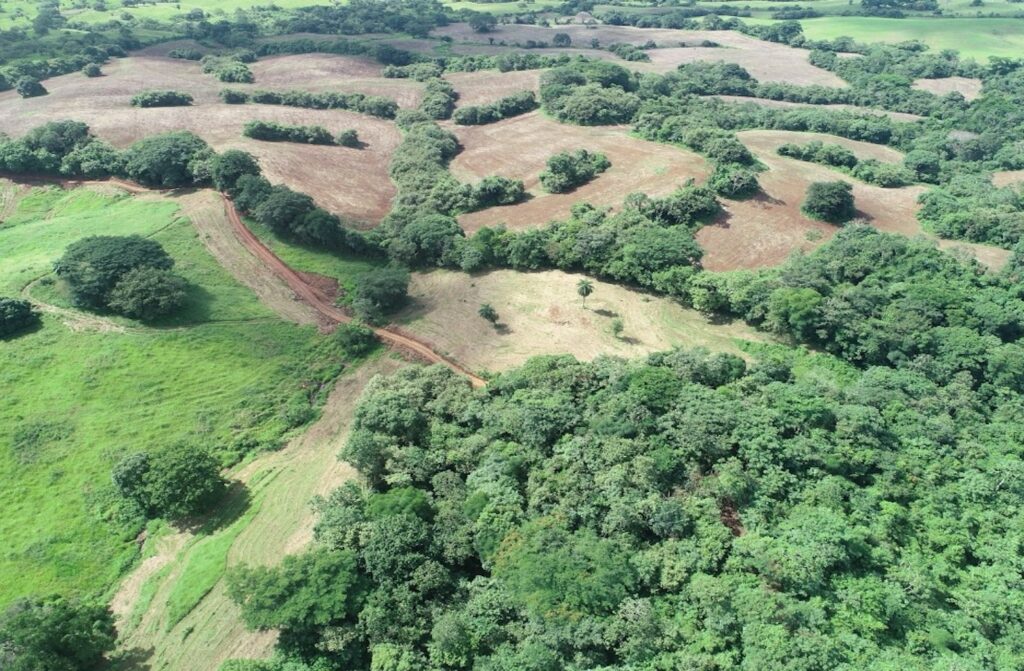In May, Microsoft signed a large nature-based carbon offtake agreement with the Azuero Reforestación Colectiva (ARC). The project aims to restore more than 24,700 acres of degraded tropical forest on Panama’s Azuero Peninsula, removing over 3 million tons of CO2 from the atmosphere in the process.
Azuero is one of a string of large nature-based carbon offtake agreements that Microsoft has struck, each with reforestation projects that will deliver over 1 million carbon credits.
Microsoft will buy approximately half the Azuero project’s carbon credits over its first 30 years through upfront financing plus a long-term offtake agreement, according to ARC project developer Ponterra. The project is expected to cost between $6,000 and $7,000 per hectare and will result in some $70 million of direct and indirect benefits flowing to local communities.
The deal, which took multiple site visits and 50 iterations of the project’s financial model to finalize, will deliver upfront financing to the project over the next seven years in a series of tranches based on project milestones, including planting progress and survival rates.
It also shows what’s needed to unlock the finance that will accelerate global nature restoration and carbon removal. Here’s how it came together.
‘Crowding in more investors’
“Microsoft was the first investor to come to the table, and their willingness to provide an offtake as well as a portion of the upfront investment was critical to crowding in more investors,” said Leigh Madeira, Ponterra’s co-founder and head of investments. Microsoft’s offtake commitment reduced the price and cash-flow risk for the other two investors, giving them certainty that there would be a purchaser for at least half of the project’s carbon credits.
“The market for high-quality removals is structurally under-supplied, and the supply of project capital remains constrained — we’re stepping in to fill the gap,” said Tom Montag, CEO of Rubicon Carbon. His company will provide most of the project’s early-stage capital, worth tens of millions, and has the largest share of the project’s 30-year streaming rights.
Carbon Streaming will also provide a portion of the project’s early-stage financing.
“By signaling demand for this type of carbon removal deal, we want to drive greater opportunity and economies of scale that can make this type of investment accessible to a much broader audience,” said Brian Marrs, senior director, energy markets at Microsoft.
Other large carbon buyers are also beginning to signal their demand for nature-based carbon credits. One example is the recent launch of the Symbiosis Coalition, by Microsoft, Google, Meta and Salesforce. It provides an advance purchase commitment for 20 million tons of nature-based carbon removal.
Restoring 75 native plant species
Decades of cattle ranching have destroyed more than 90 percent of the Azuero peninsula’s native tropical forest.
The ARC project team will replant 75 native species on the site, expanding habitat for endangered species such as the Azuero spider monkey. By comparison, only four native species are planted, on average, in reforestation projects of this size, according to a 2023 study by Social Carbon.
ARC is one of only six carbon projects globally using carbon standards setter Verra’s newest reforestation methodology. And it is the only ARR (afforestation, reforestation and revegetation) project selected to pilot Verra’s SD VISta Nature Credit framework.
“Our firsthand experiences speaking with the chief forester, visiting the nursery (and micro nurseries), and hearing from the community gave us confidence that this project will not only restore native forests, but support local wildlife and bring economic benefits directly to local communities,” said Marrs.
Ponterra’s team of restoration ecologists is collaborating with scientists from The Smithsonian Tropical Research Institute and the Crowther Lab at ETH Zürich on the ARC project. Ponterra expects that the project will provide over 300 local jobs, including year-round employees and seasonal workers.
‘Landowners have a preference for reliable income’
Over 100 local landowners will have the opportunity to participate in the project and receive compensation from its hybrid payment system, which combines both regular land-lease payments and a percentage of future carbon-credit sales.
Interviews with local landowners showed that “while carbon revenues are certainly attractive, landowners have a preference for reliable income that they can plan around,” according to the project’s Verra registration documents. “The combination of fixed and variable payments provides financial security for the landowners while sharing upside related to the carbon markets and aligning incentives for the project’s success.” The annual land-lease payments will cover the cost of maintenance that landowners must implement, such as putting in fire breaks and fencing, and help replace the income landowners forgo from cattle ranching.
Matching nature’s timeframe
Deep due diligence is at the heart of Microsoft’s carbon purchasing strategy as well. “While onsite visits aren’t mandatory for buyers, having a trusted technical adviser validate the conditions on the ground is essential. Strong community ties and operational excellence are the backbone of a project’s longevity,” said Marrs.
The investors’ long-term outlook enabled the deal to overcome one of the biggest barriers to financing nature-based carbon projects: time. While many investment funds have a five- to seven-year return expectation, and many carbon buyers are looking to secure credits in the near future, those timelines don’t match the much slower rate of carbon sequestration in restoration projects, which can take several years to pick up as saplings grow.
“We are fortunate that Microsoft was able to offer an offtake through 2040 and that all three of our investors were on board with the 30-year investment timeline,” said Madeira.
[Streamline your supply chain at VERGE 24 (Oct. 29-31, San Jose), the hub for professionals driving transformative, decarbonized and profitable change.]
>>> Read full article>>>
Copyright for syndicated content belongs to the linked Source : GreenBiz – https://www.greenbiz.com/article/inside-microsofts-panama-tropical-forest-carbon-offtake-deal
